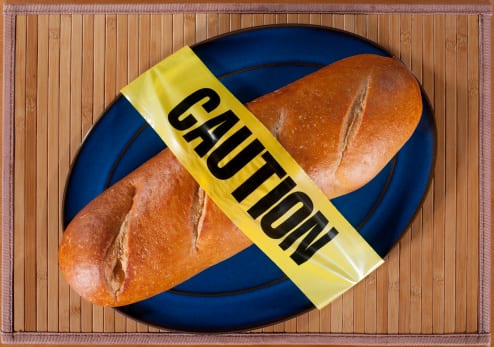 Should you go gluten free? What is a gluten-free diet?
Should you go gluten free? What is a gluten-free diet?
Gluten is “a protein composite found in foods processed from wheat, barley, and rye.” Therefore, a gluten-free diet would contain only foods that are made without gluten.
In the last few years, gluten-free diets have become an option for people on the autism spectrum. According to my research, gluten free diets in some people with ASD’s prove effective in helping to curb behavioral issues and helping with overall regulation.
Do we go gluten free?
Honestly, we have never tried a gluten-free diet with our child.
Why not?
Because during the early years when our child was receiving over twenty hours of at-home DTT services – plus speech, OT, and other socially-related activities – his supervisor and us studied his behaviors and decided they didn’t seem related to foods he ate.
He would struggle with behaviors, but those behaviors existed no matter what he ate. He would eat different foods and yet have the same behaviors.
Why did we not, at least, try the gluten free diet?
My husband and I discussed it and we discussed it with our child’s DTT supervisor. We all talked about the foods he was eating. Then, after a year of intensive therapies, our child’s behaviors began to improve. His programs started to have an effect.
By the time our child began kindergarten his good days were outnumbering his bad days. At first, the numbers were more or less equal, but then the good days began to outnumber the bad days. It got better in first grade and then in second and third grade.
But this lack of a gluten free experience doesn’t mean I don’t have an opinion on whether you should try a gluten-free diet with your child.
What are some gluten free ideas?
First, from what I’ve heard, the most successful gluten-free diets are those where the entire household goes gluten free. Having the entire household go gluten free all at the same time makes your household meals consistent. In my opinion – and from talking to others – it seems to be very hard for one or both parents or a sibling or two to eat regular meals while one child eats gluten free. It is too hard on everyone to split the diets in the household.
Second, make sure you research exactly what a gluten-free diet is. You should sample a few foods as well as your child. Third, talk to your child’s doctor about possibly going gluten free. There may be other reasons why your child’s doctor may not want you to consider such a drastic change.
When should you try it?
In my opinion, you should try a gluten-free diet when you’re frustrated by the lack of progress of other approaches. We felt our child’s early behavioral interventions were working, which was why we did not pursue more drastic options.
What I had learned (back then) about gluten-free diets were they were adopted by families only after traditional behavioral therapies was not working. Families were at their wits end about how to help their kids. They were desperate to find some approach that would help.
In many cases, I had heard a gluten-free diet had worked miracles. If we had felt that nothing we were doing was working and we needed to consider other approaches, we would have more seriously considered a gluten free diet. And, we would have committed to it fully and appropriately.
But our child was improving. Traditional approaches were working with our child. He would plateau at times, of course, but then he would improve. We saw no need for such a radical change in our child’s life or in our lives.
What are the gluten-free diet pressures out there?
I’m calling this section the “gluten-free diet pressures” for a reason. Because there are parents and/or organizations out there that will tell you that you have to have your child with autism on a gluten-free diet.
Again, I’ve been “out there” in the autism community for years. And I have experienced this attitude first hand. I have seen it action. “I really feel all autistic children should be on a gluten-free diet.” There’s even a celebrity out there who swears by it.
Let me state this: You do not have to have your child on a gluten-free diet.
It is ridiculous to think that this is the only way to curb behaviors. My son is proof that significant progress can be made without a gluten-free diet. And I know many other families with similar kids; children on the autism spectrum who are improving without the gluten-free diet.
I’m skeptical of any such statements, by the way, when it comes to autism. Scientific experts do not know the exact cause of autism. And, those same experts also do not know one specific approach that works with every child. Scientists have theories. And families with children on the spectrum have experiences.
Every child with autism is different. What works for one child may not work for another child. When that celebrity says the gluten-free diet worked, they have to say, “for my child.” They cannot say “for all child on the spectrum.”
I say if something is working for your child then stick with it. If you looked closely at all the options that are out there that you should be doing, you’d probably drive yourself crazy.
My suggestion is – take a breath before diving into anything. Research things thoroughly. Be on the same page with your spouse/significant other, your child’s doctor, your child’s therapists, and anyone else in your life whose input you value.
Then, choose with care. This is your child, after all! Nothing matters more.
In my next blog, I will continue with discussion in regard to autism-related drugs and vaccinations.
To Find Kimberly Kaplan:
www.smashwords.com or Amazon Kindle ebook “A Parents’ Guide to Early Autism Intervention”
Twitter: @tipsautismmom





